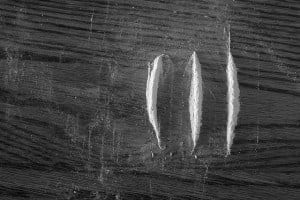
College is often students’ first real taste of independence. They are living on their own, in charge of their own schedule, and making new friends. At the same time, they are focused on building a strong academic foundation that will help them to secure a career upon graduating. The pressure to succeed coupled with the desire to be social can be immense. Finding a balance is necessary for maintaining good health.
Unfortunately many students turn to drugs or alcohol as a way of trying to find this balance. Alcohol and drug abuse can lead to serious problems affecting not only physical and mental health, but also school performance, friendships, and more. According to the National Institute on Alcohol Abuse and Alcoholism (NIAAA), approximately four out of five college students drink alcohol, and of those students, approximately half engage in binge drinking. They note that consequences of drinking can include:
-
Academic Problems
-
Health Problems/Suicide Attempts
-
Injury
-
Assault
-
Sexual Abuse
-
Death
Why are Students Turning to Drug or Alcohol Abuse?
Stress: Some students have a difficult time coping with the stress of classes and balancing school, work, and their social life.
Peer Pressure: Looking to have a good time, they feel pressured by friends to drink or experiment with drugs. Many parties have drinking games and students use it as a way to feel more relaxed and social.
Focus: In an effort to finish projects, get better grades, and continue studying on little sleep, some students turn to drugs such as Adderall or Ritalin to improve their focus. While these are commonly prescribed for people with ADHD, those without this condition also use it to boost their own ability to pay attention and concentrate. Adderall abuse can have negative side effects and lead to addiction and other health problems.
Relaxation: In the face of stress, students can have a difficult time relaxing. They may turn to benzodiazepines such as Valium or Xanax to help them unwind and decompress. This can help to alleviate anxiety and insomnia, but when misused can cause significant impairment. Benzodiazepine abuse can turn into addiction as students become dependent on the effects they feel.
Boredom: College offers students freedom from the structure of high school they had become accustomed to. They are responsible for planning their day and getting to class. With an increase in downtime and more independence, students may use drugs or alcohol as way to pass the time and experiment with new things.
Fighting Back against Substance Abuse
It is essential that students recognize the dangers of drug and alcohol abuse. Not only does it take a toll on their body, but it impairs their mind as well. From liver and heart problems to poor decision making, risky behavior, and more, substance abuse can derail students’ futures. Becoming educated on the health and academic risks can support students in learning how to say no, moderate their drinking, and engage in healthier activities.
Drug and alcohol rehab centers are an effective way of helping students to overcome substance abuse problems and develop alternative coping strategies. This can allow them to regain focus on maximizing their potential and excelling in their education. With improved health, they have more energy and focus and also reduce the risk of developing more serious health conditions. There are many ways to enjoy the college experience without drug or alcohol abuse and through increased awareness, prevention, and access to treatment, college students can fight back against this serious problem.















